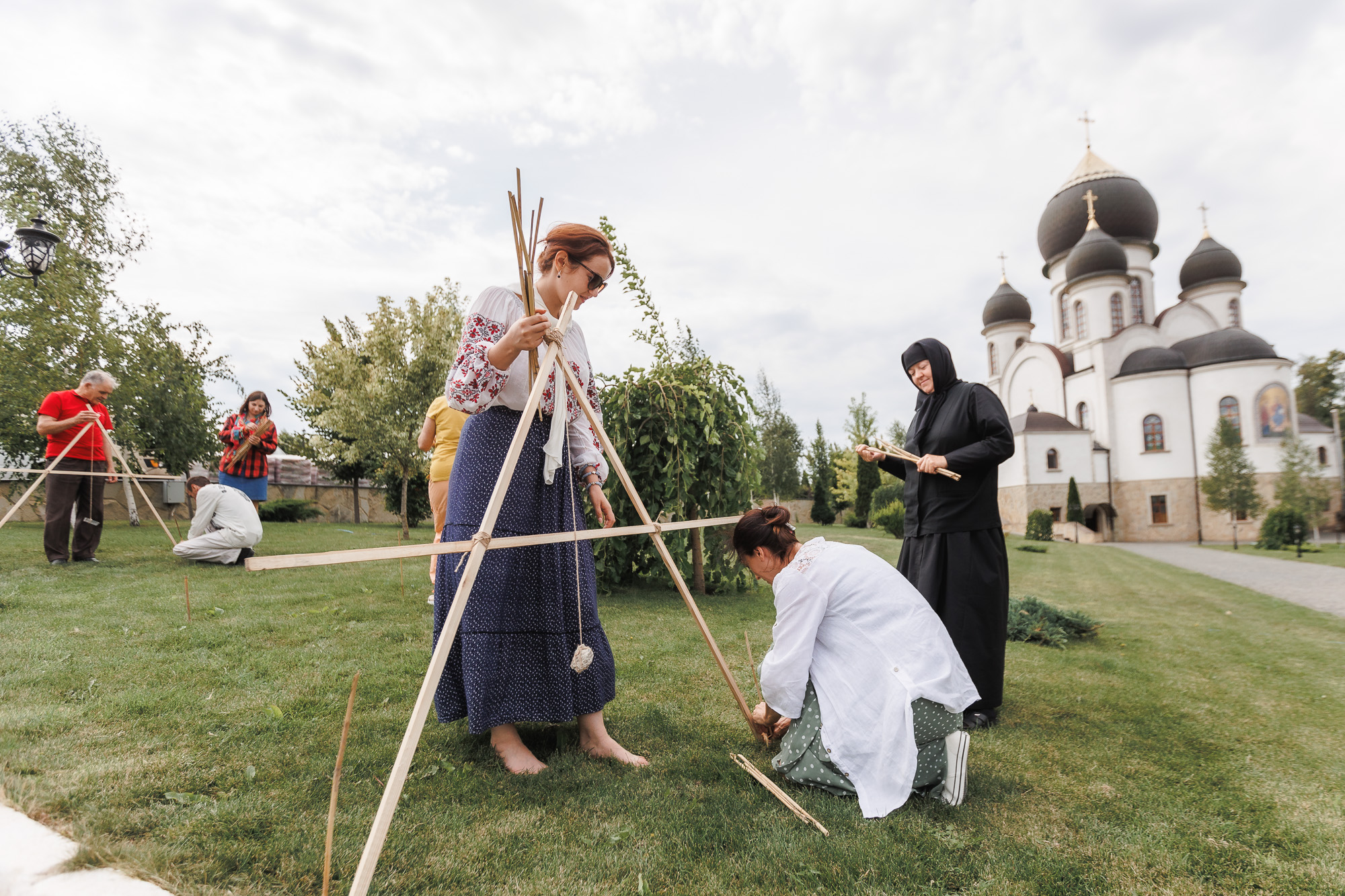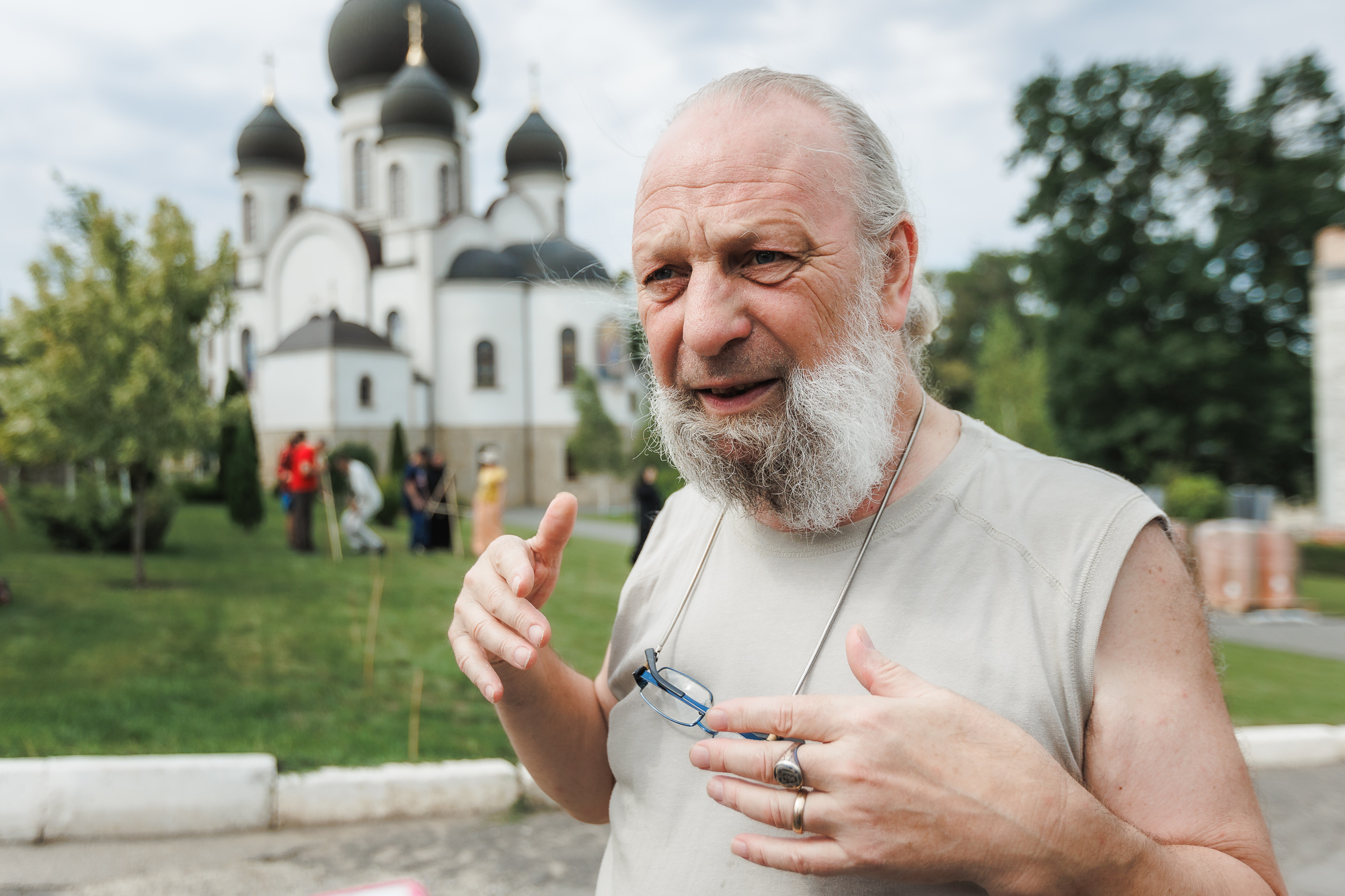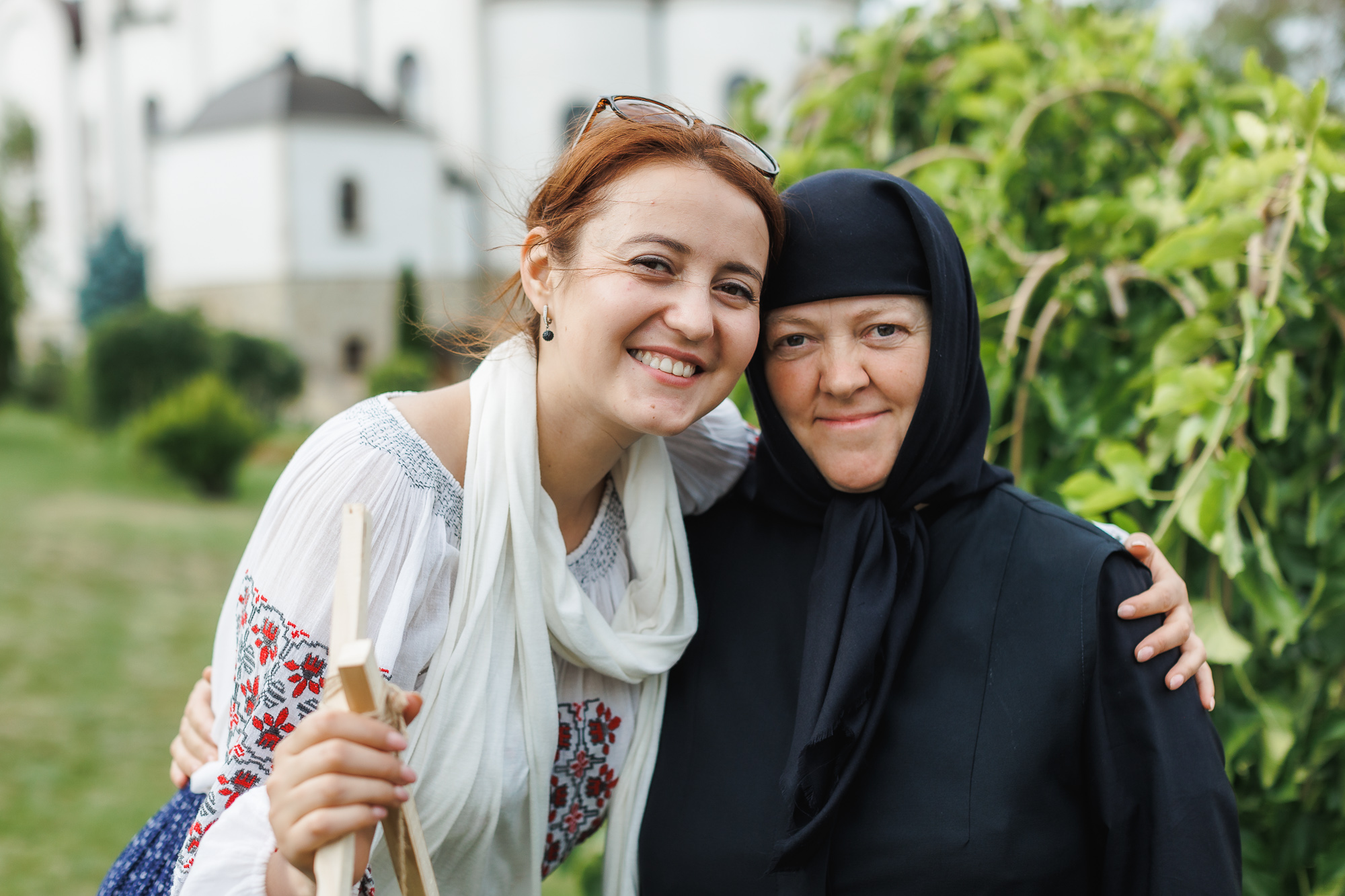A training course on theory and practice of permaculture was organised by the Republican Centre Gutta-Club in the framework the EU Confidence Building Measures Programme, implemented by UNDP Moldova.
Gardening in harmony with nature or how to enjoy gardening, including in your apartment
September 6, 2022

The location that hosted the course was not random – the Hagimus monastery, Căușeni district.
Permaculture is a comparatively new approach, with origins that date back in the past though, which offers practical ideas for the planning and design of living spaces and farming systems. The concept of permaculture (or permanent culture) can be applied anywhere, be it for community spaces, apartment/balcony planters, gardens or farms. Although it has been practiced for more than 60 years, for the first time in the Republic of Moldova people from both sides of the Nistru river received a certificate for a permaculture intensive course.
“I'm a city townsperson. I did not have the chance to work in the countryside or to take care of a garden, but 13 years ago I attended a similar permaculture design training in Belarus. I was deeply impressed, so I decided to introduce this concept in Moldova.
Permaculture helps us to live in harmony with nature and make rational use of its resources, in addition to being beneficial to our mental health.”Natalia Cravciuc, president of the Republican Center Gutta-Club
For two weeks, 16 participants learned how to obtain a rich harvest with less effort and that permaculture is a sustainable and energy-efficient way of gardening.
“People don't analyse and observe the land/garden they take care of. They want results as quickly as possible, and this is the first and worst mistake. The key principle in permaculture is observation – before you want to get anything from a piece of land, first you have to observe only, that's all. It is not up to humans to change the system according to which the laws of nature function, instead they should adjust their needs so that they get what they want,” explains the trainer George Sobol.

The trainer George Sobol
Another common mistake is that some people start planting in large patches. The recommendation is to start small-scale, and once the expected result is achieved, to expand.
Elena Mărgineanu, PhD student and lecturer in environmental law, was one of the participants in the permaculture design course. She is working on a permaculture project for her thesis. She planted in a circular shape all the fruit tree species growing in the Republic of Moldova on seven hectares of land in Anenii Noi. “This is something unique. I started from the earliest fruit-bearing trees all the way to the latest. I have also planted regular trees to maintain shade over the plants that need it. I want to get the healthiest possible yields and this is exactly what I learned in the course: how to make sure that the humidity is preserved, with the minimum use of water.”
Alexandr Gușenco, artist and sculptor, attended the course as well. He first discovered the concept of permanent culture in Ukraine. “I have lived in Ukraine for a long time, then returned to Moldova, to the left bank of the Nistru river. We need to pass on this knowledge to other people, to popularise permaculture, so that they know how to use natural resources, how to limit the use of chemical fertilisers, which affect the soil’s composition.”
The location that hosted the course was not random – the Hagimus monastery, Căușeni district. The nuns who work in the monastery household were also impressed with the earned knowledge.
“After this course I think we will set up a pit for compost and another for animal waste so we can use it on the farmland. I learned many interesting things, such as solar energy, and we are already thinking about harnessing it,” says Mother Evsevia.

Elena Mărgineanu and Mother Evsevia
Permaculture is a way of designing communities based on mimicking natural ecosystems so that natural resources are not depleted, the environment is not polluted and the farming system is sustainable with minimal human intervention.
This permaculture course is part of overall European Union’s efforts to encourage the increase of quality standards of agriculture products and the capacity of local farmers to grow organic fruits and vegetables.
According to the 2020 Report on the Status of Organic Agriculture and Industry in Moldova, developed by EkoConnect, due to its good soils, 63% of Moldova’s land cover is used for cropping and that’s the highest ratio in Europe.
The excessive use of synthetic fertilisers and chemical pesticides, permanent monocultures, as well as the lack of crop rotation leads to a reduced biodiversity and level of organic matter in the soil.
To strengthen the resilience of the sector and to make it less vulnerable to the new climate conditions and to improve its productivity, it is essential to enrich the organic matter in the soil and biodiversity through climate-smart agriculture.

 Locations
Locations


